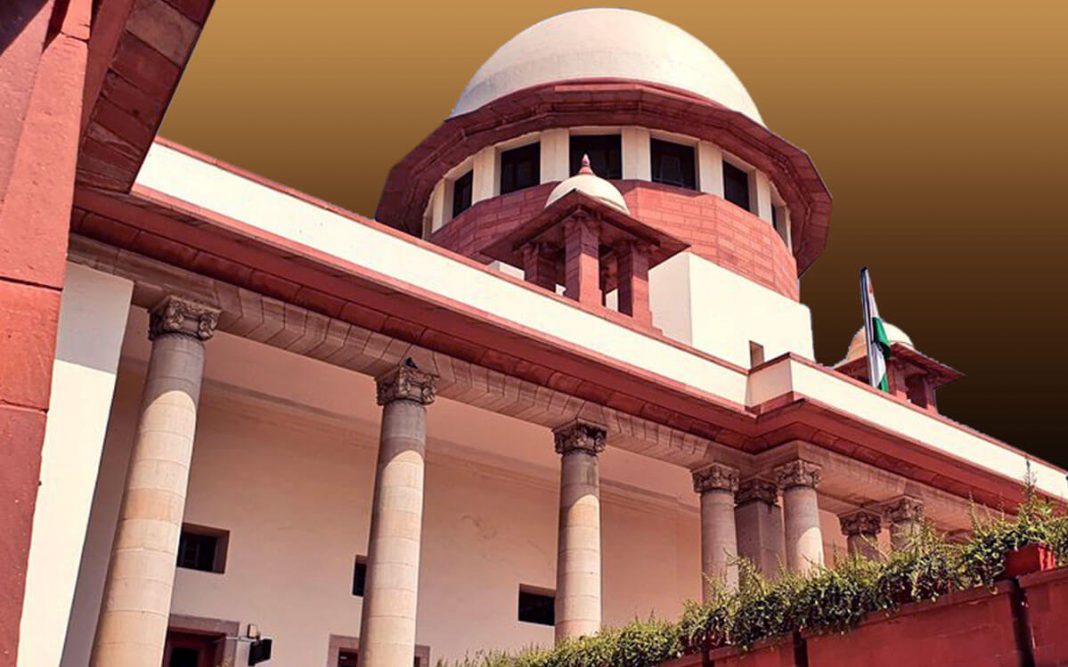The Supreme Court on Monday adjourned hearing for four weeks on a petition seeking minority status for Hindus in Mizoram, Nagaland, Manipur, Meghalaya, Arunachal Pradesh and Punjab.
Yesterday, the Centre informed the Court that the state government can declare any religious or linguistic community, including Hindus, as a minority within the said state.
Solicitor General Tushar Mehta today informed the Bench that he hasn’t read the affidavit and sought adjournment for four weeks. A Bench of Justice Sanjay Kishan Kaul and Justice M.M. Sunderesh noted,
“SG has not read the affidavit yet and he’s not aware of the view of department and seeks 4 weeks time, rejoinder 2 weeks. We’ll keep it for directions on 10th of May.”
The Union Ministry of Minority Affairs told the Supreme Court that while the Central government has notified six communities, namely Christians, Sikhs, Muslims, Buddhists, Parsis and Jains, as minorities as the national level, it is open for states and UTs to notify Hindus as a religious or linguistic minority where they are less in number.
Also Read: Hijab: All India Muslim Personal Law Board challenges Karnataka High Court verdict in Supreme Court
The Centre submitted that the Maharashtra government notified Jews as a minority community in 2016. The Karnataka government notified Urdu, Telugu, Tamil, Malayalam, Marathi, Tulu, Lamani, Hindi, Konkani and Gujarati languages as minority languages. Therefore, the state government can also declare a religious or linguistic community as a ‘minority community’ within the state.
Previously, the Court had issued notice on a plea challenging the validity of part of the National Commission for Minority Education Institution Act, 2004 for failing to recognise minorities at the state level.
The petition has been filed by Advocate Ashwini Kumar Upadhyay, challenging the validity of Section 2(f) of NCMEI Act 2004, for not only giving unbridled power to the Centre, but also for being arbitrary to Articles 14, 15, 21, 29 and 30 of the Constitution of India.
“After the judgment in TMA Pai Case, [(2002) 8 SCC 481] the legal position is very clear that the unit for determining status of linguistic and religious minorities would be State”
-added the petitioner.
The petitioner has submitted that followers of Judaism, Bahaism and Hinduism; who are real minorities in Ladakh, Mizoram, Lakshwadeep, Kashmir, Nagaland, Meghalaya, Arunachal Pradesh, Punjab, Manipur, cannot establish and administer educational institutions of their choice because of non-identification of ‘minority’ at State level, thus jeopardizing their basic rights guaranteed under Article 29-30. Their right under Articles 29-30 is being siphoned off illegally to the majority community in the State because Centre has not notified them ‘minority’ under NCMEI Act.
Hence, the petitioner has urged the court to direct and declare that followers of Judaism, Bahaism and Hinduism, who are minorities in Ladakh, Mizoram, Lakshwadeep, Kashmir, Nagaland, Meghalaya, Arunachal Pradesh, Punjab and Manipur can establish & administer educational institutions of their choice in spirit of the TMA Pai Ruling.
In the alternative, it has been prayed to direct the respondents to lay down guidelines for identification of minority at State level, in order to ensure that only those religious and linguistic groups, which are socially economically politically non-dominant and numerically inferior, can establish and administer educational institutions of their choice.


